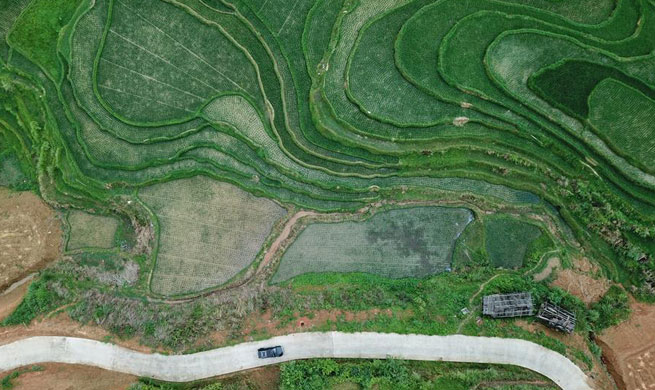CHANGCHUN, June 25 (Xinhua) -- Chinese archaeologists plan to use ancient domesticated animals' DNA to establish their importance in cultural exchanges along the Silk Road.
The archaeologists with Jilin University in northeast China's Jilin Province will collect the samples from the remains of domesticated animals found at various sites along the Silk Road and conduct genome-wide analysis.
Domesticated animals contributed to trade and exchanges as a stable resource of protein and power.
Professor Cai Dawei said the research would be a new vision of the development of the Silk Road.
Royal emissary Zhang Qian's trip to the western regions around 140 B.C. is generally considered the beginning of cultural exchanges between the East and the West, but recent archaeological findings confirm that such activities began in prehistoric times, Cai said, as early as the late Paleolithic age.
Bronze smelting and domesticated animals like horses and cattle were brought to the East, while millet and painted pottery were introduced to the West.
The research is expected to be completed in 2022 with the support of the National Social Science Fund of China and the cooperation of Chinese, Central Asian, and European archaeologists.

















